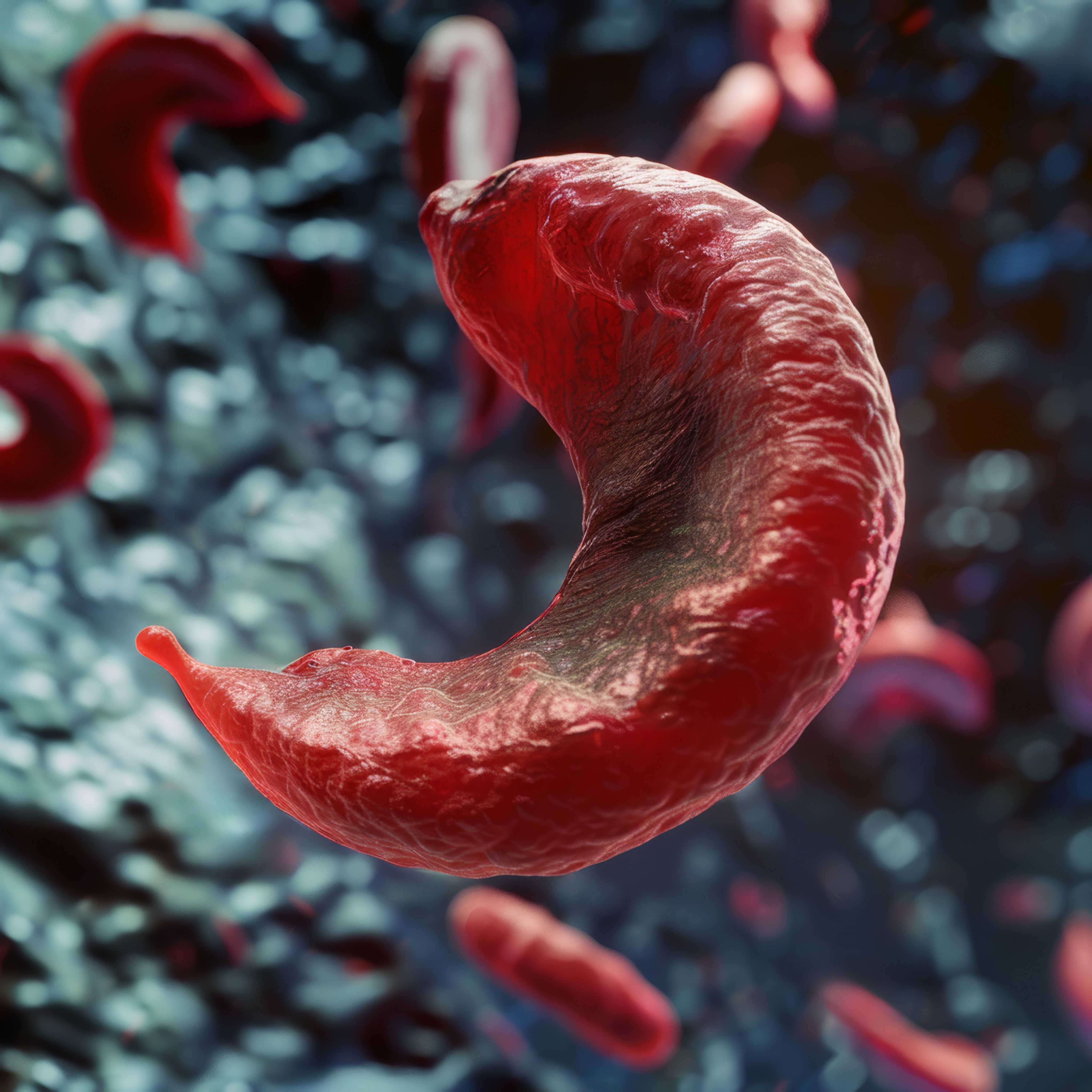- Center on Health Equity & Access
- Clinical
- Health Care Cost
- Health Care Delivery
- Insurance
- Policy
- Technology
- Value-Based Care
COVID-19 Vaccination Shows Favorable Risk-Benefit in Sickle Cell
A study from the American Society of Hematology (ASH) Research Network reports positive antibody response and tolerability after mRNA vaccination in people with sickle cell disease.
This article was originally published in HCPLive® and has been lightly edited.
COVID-19 mRNA vaccination displayed a positive risk-benefit profile in people with sickle cell disease (SCD) in a recent analysis from the American Society of Hematology Research Collaborative (ASH RC) SCD Research Network.1
Individuals with SCD achieved antibodies against the receptor binding domain (RBD) of SARS-CoV-2 at similar rates to the general population, with a decline in circulating anti-RBD antibodies comparable to immune decay in COVID-19-naive and -exposed vaccine recipients.
Sickled cell concept | image credit: matheusRuas - stock.adobe.com

“This study is the largest prospective study of COVID-19 mRNA vaccination of individuals with SCD, and the only trial to show the rate of antibody decay over subsequent months. It is also the first to include very young children,” wrote the investigative team, led by Charles S. Abrams, MD, department of medicine, University of Pennsylvania.
SCD has been linked to shortened life expectancy by ≥20 years and can involve multi-organ impairment.2 Those with the genetic disease also experience an increased risk of infections, due to asplensia and impairment of the alternative complement pathway.
Previous data have demonstrated the efficacy of some vaccines, including Hepatitis B and Streptococcus pneumoniae, to be impaired in children with SCD.3 COVID-19 mRNA vaccination is recommended for individuals with SCD due to high hospitalization rates.
However, there has been concern about the potential for mRNA vaccines to introduce unique disease-related complications in patients with SCD, leading to apprehension and a suboptimal immunization rate.4
An increased understanding of the response to COVID-19 vaccination in this high-risk group could offer more targeted approaches to vaccination and the dosage required for adequate protection.1 This prospective clinical study addressed whether COVID-19 mRNA vaccinations induced a normal immune response or precipitated unique toxicities, including vaso-occlusive events, in patients with SCD.
Eligible participants had any genotype of SCD, had not been previously vaccinated against COVID-19, and agreed to be vaccinated as part of routine clinical care.
Abrams and colleagues measured anti-RBD IgG concentrations by ELISA in duplicate on plasma biospecimens from baseline, 2 months, and 6 months after the initial vaccination. Based on earlier findings, the team deemed samples with IgG levels >0.48 units/mL seropositive and those with IgG ≤0.48 units/mL seronegative.
An initial accrual goal of 200 participants was determined in December 2020 before the availability of COVID-19 vaccination. However, investigators indicated the study opened for full accrual in the first half of 2022 when many community members were already vaccinated.
Overall, 59 participants were enrolled between December 2021 and February 2023, of which 47 (80%) received ≥1 COVID-19 vaccine dose. The 41 (69%) participants who contributed paired baseline and 2-month post-initial vaccine samples for analysis of anti-RBD IcG all received the Pfizer-BioNtech vaccine.
These 41 paired samples were provided from 17 (41%) adult participants and 24 (59%) pediatric participants, of which 7 (17%) were aged <3 years.
Upon analysis, a total of 20 (49%) participants reported >1 post-vaccination side effect or SCD-related complication, with the most common being vaccine-site pain and myalgia. No reports of fever were seen in a clinic or emergency department, or admitted to a hospital.
Vaso-occlusive pain was reported by 5 (12%) participants in the 2–3 days post-vaccination, including 4 (9.8%) who needed additional pain medication, 3 (7.3%) who sought medical care, and 1 (2.4%) admitted to the hospital.
At baseline, 14 (34%) participants were seronegative and the remaining 27 (66%) were seropositive, despite only 12 (29%) participants reporting COVID-19 infection before enrollment. All participants converted to seropositive at the 2-month post-vaccination time point, with a median IgG of 32.155 units/mL.
“It is our hope that this information will help inform providers and future research studies as well as offer some assurance to those in the SCD community that future mRNA vaccines can offer more benefit than risk to this patient population,” Abrams and colleagues wrote.
References
- Anderson AR, Strouse JJ, Manwani D, et al. COVID-19 mRNA vaccination responses in individuals with sickle cell disease: ASH RC sickle cell research network study. Blood Adv. Published online July 11, 2024. doi:10.1182/bloodadvances.2024013878
- Vichinsky E. Chronic organ failure in adult sickle cell disease. Hematology Am Soc Hematol Educ Program. 2017;2017(1):435-439. doi:10.1182/asheducation-2017.1.435
- Hord J, Windsor B, Koehler M, Blatt J, Janosky J, Mirro J. Diminished antibody response to hepatitis B immunization in children with sickle cell disease. J Pediatr Hematol Oncol. 2002;24(7):548-549. doi:10.1097/00043426-200210000-00010
- Aldali JA, Alotaibi BA, Aldali HJ, et al. Assessing the impact of COVID-19 vaccines on sickle cell anaemia patients: A comparative analysis of biochemical and haematological parameters. Biomedicines. 2023;11(8):2203. doi:10.3390/biomedicines11082203
